Brockman Family
The Brockman surname is not common, but seems to have originated within groups of people located in areas now falling within several European countries, and it has spread to many countries around the world. The Northern and Western European name can be a topism combining "wet/water" and "man".
Diverse in its origins, the name originated within populations speaking Low Germanic languages amongst the Germanic tribes who settled in what are now England, the Netherlands, Germany, Sweden, Denmark and elsewhere. There appear to have been multiple geographic points of origin for the Brockman name among tribes transmitting similar cultures and sharing common linguistic origins. It is therefore unlikely that all Germanic people carrying the surname share a common ancestor in a genealogical sense.


International Y-DNA Testing
edit
Great strides have been made in genealogy, thanks to the rapidly maturing field of DNA testing. A Y-DNA testing effort was undertaken with anonymous volunteers with the surname Brockman from around the globe. Thus far samples have been acquired from the UK, USA, and Germany. An article on the Y-DNA results as of 2007 can be found here.
Genetic testing to date has yielded multiple results tracing UK Brockmans as R1a and R1b descent to various ancient Germanic origins of arguably Frisian and Norwegian haplotypes.
Exciting and surprising relationships are being found to exist between Brockmans of European origins who may have migrated inland from seacoasts stretching from the United Kingdom and coastal Northwestern France, Belgium, and the Netherlands, along the seacoast north to the North Sea Bite, Lower Saxony, DE, in Denmark and Sweden, and to Poland. This picture is still coming into focus and it remains to be seen how many of these disparate Brockmans may be related. It is known that the name originated independently, among different groups, so it will be interesting to see how far some families may have traveled.
There are several Brockman family groups whose data is stored on various testing companies. Those companies can provide testing and will report degree of relationship, if any, to those tested Brockmans, and to countless others around the world. One of the larger groups of Brockman tests are hosted by Family Tree DNA. Brockmans are also registered with some of the following:
Less commonly known, somewhat more expensive, but with excellent reputation: Sorenson Genomics
This is not meant as an endorsement of any of these companies. Other research project organizers are encouraged to post other resources and vendors.
International Brockmans
editNetherlands / Holland Brockmans, Broekmans, and Broeksma
edit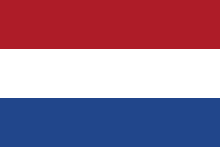
In the Netherlands the name tends to be spelled Broekman, Broeksma, or Broekstra and in Germany it tends to be spelled Brockmann, and that is the closest to the spelling that seems to have predominated in the UK (Brockman). If there is a central locus to be found for origins for Low Germanic Brockmans sharing DNA who spread from the seacoasts of the UK and France to Poland, it might be found in an area which lies partly in what is now the North of the modern Netherlands. This is unknown at this point.
Germany Brockman[n]s
edit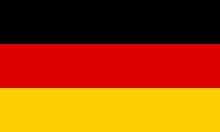
There has also been some research on the Brockman and Brockmanns surname in Northern Germany and Northern Europe. Several of the Danish, Swedish and Norwegian Brockmanns can be traced back to their German roots. In the kingdom of Denmark-Norway around the 16–17th centuries approximately two thirds of the soldiers had Germanic roots. Sweden also had a lot of Germans in their army. Most regiments were enlisted in Germany.
In Holstein many Brockmann families immigrated from Lower Saxony or Westphalia and in later from Mecklenburg (The Mecklenburger Brockmanns probably also came from Lower Saxony or Westphalia). In Probstei (Holstein) it is noted that Brockmanns came around 12. century to Holstein. On the edge of Holstein (River Elbe) several Brockmann-families also appear to have come from Lower Saxony. There were no Brockman families in the middle of Holstein and Duchy Schleswig (besides one or two persons/families without long standing or harbour cities ) prior to 1780.
The English Brockmans may also have emigrated to England from the Lower Saxony area in ancient times. In addition, many Brockmanns in Scandinavia are thought to have come from the North of Germany (The old language of Norway, Sweden and Holstein were nearly the same – low Germans in their different forms). Low German is nearer to English than to high German. Low German Article
England Brockmans
edit
The Brockman surname, though found throughout northwestern Europe and not ubiquitous in the United Kingdom, occurs in historical documents with enough frequency in the British Isles to be commonly characterized as a surname adopted by, and originating among, sub groups of peoples living in areas that are now part of England.
Kent, England
editThe Brockman surname has been in use in the county of Kent, in England, for at least five centuries, and probably longer. Kentish peoples were among the earliest groups of British people to adopt surnames, following the Norman conquest of England.
The people of Kent inhabited a jumping off point for the Norman invasion of 1066. Although they later formed a resistance to the changes initiated by the conquerors, they may not all have been entirely unwelcoming to invasion by either of the two main invasions contemporary to the times—that of the Normans and that of the Danes. The invaders may even have initially met with some support among Kentish people, many of whom had more in common with the coastal peoples from across the narrow waterways than they did with British peoples farther inland.
Historically, both Flanders and Kent were deliberately populated by Frisian tribes forced to relocate by Romans as discussed here, and Kent later became a Frisian and Jute Kingdom at different pre-Norman periods. Meanwhile, Frisia having been depopulated of Frisii by rising sea water levels was later resettled by Saxons and Angles. Thus the peoples of these regions shared great exchanges of DNA, language, and culture.
Linguistically, Old Frisian and Old and Middle English are closely related, and the dialects of the southeastern seacoast of England reflect this the most. Once Norman rule was established, surnames were adopted rather quickly by the people residing in what is now modern England, and the Kentish were among the earliest groups of all to conform.
The Brockman families of Kent are found interesting by many who research English Brockman history, as the gentry of manors such as Broadgate, Newington and Beachborough were notable. More information is available regarding the squires of Beachborough and the manor house here.
Broader UK
editThe surname has also had long history beyond Kent—in England, and probably elsewhere in the UK. From a perspective of ancient origins, Kent and other eastern areas in England are thought to have been convenient landing points where Germanic groups from the North Sea Bight settled during the various Germanic migrations to the island during the first millennium AD.1 Since the surname is Germanic in its linguistic origins, and the use of surnames appeared at various points in history, there are probably unrelated families of Brockmans in the UK today.
Notable English Brockmans
edit- Sir William Brockman, English Cavalier
- Brig. General David H. Drake-Brockman C.M.G., UK
- Sir Ronald Brockman, Vice Admiral, UK
- Henry Stafford Brockman, Engineer Rear Admiral, UK
- Sir Edward Lewis Brockman, UK chief secretary to the Federated Malay States 1911–1920
- Tallulah Brockman Bankhead, U.S. and UK, actress and "bonne vivante"
Denmark Brockmans, Brockmann, and Brochmann[d]
edit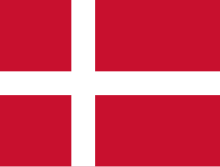
In Denmark the name changed from Brockmann to Brochmann or Brochmand (see also the German name Brückner got Brøchner). That differs from the Jewish name Brochman. For example, Brockmans who immigrated to the USA and elsewhere with the surname Brochmann/Brockmann often originally had the name Brochman.
Norway Brockmans, Brockmann, and Brochmann[d]
edit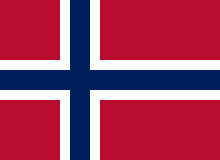
More information is sought regarding the Norwegian Brockmans of Norway.
Sweden Brockmans
edit
Information is sought regarding Brockmans of Sweden.
Poland Brockmans
edit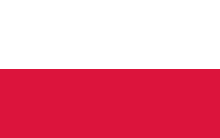
More information is sought about the Brockman families of Poland.
Estonia Brockmans
edit
More information is sought regarding the Brockman families of Estonia.
Finland Brockmanns
edit
Information is sought regarding Brockmans of Finland.
Russia Brockmans
edit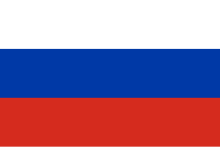
Information is sought regarding Brockman migrations of Russia.
United States of America Brockmans
edit
English American Brockmans
editAn English line of the Brockman family in the United States was founded by Henry Brockman, born in 1647. Henry was born during the Commonwealth period in England. Some sources assert that he was exiled by Oliver Cromwell's Roundheads, as a result of his closest relatives' royalist activities. But there is no 'hard evidence' of Henry's origins, sources detail oral traditions passed down by distant branches of the family and recorded in scrapbooks. These sources further suggest that he either fled or was sent to the "Barbadoes", a British possession embracing not only the present island nation of Barbados, but also other possessions now known as Aruba and Surinam among others that were transferred to the Dutch in or about 1667. However, various genealogists disagree with these theories and discount them as speculative. In the end, Henry's exact origins are unclear, but he is widely regarded to have been English in origin.
The Anglo-American Brockmans are often referred to as 'Greenway' Brockmans after a farm that was built by Henry's son Samuell in Orange County Virginia. Various descendants are notable including a number of revolutionary war, civil war, and world war II veterans. The actress Tallulah Brockman Bankhead, and her politician father William Brockman Bankhead are both descended from this line.
Connected Families
editSamuel Brockman married to Mary Madison, daughter of John Madison and Isabella Minor Todd. Mary Madison Brockman's brother was Ambrose Madison, father of Colonel James Madison and grandfather of President James Madison.
John Brockman Jr., born in Orange County, Virginia in 1735 moved to Spartanburg County, S.C. He was the grandson of Samuel Brockman. He married Amelia Martin in 1757 and moved to Spartanburg County, S.C. They had nine children. One of these children, Mary Brockman, married Joel Dean in 1755 and had numerous children and many descendants. One of the descendants was Captain George Bobo Dean of Spartanburg S.C. and Senator Alvin Henry Dean of Greenville, S.C. A son of Joel Dean and Mary Brockman was John Dean who married Mary Farrow, daughter of Senator Samuel Farrow of South Carolina. Also descended from this marriage is Junius Simpson Dean who married Paulina Dupont of Delaware.
Another child of John Brockman and Amelia Martin was Henry Martin Brockman (1764-1835). By his wife, Sussanah Patterson, he was father of Colonel Thomas Patterson Brockman of Greenville, S.C. He was an important political figure in Greenville County and two of his sons were killed in the Civil War .Another son, James Henry Brockman was the father of Tallulah James Brockman who married Senator John Hollis Bankhead of Alabama, parents to actress Tallulah Bankhead, Senator John H. Bankhead Jr. and William Brockman Bankhead, Speaker of the House of Representatives.
From 1944 until 1960, Belton Bryant Brockman (known as "B.B')served as Sheriff of Spartanburg County, S.C. He died at age 92 in 1990. Sheriff Brockman was a direct descendant of the above Samuel Brockman twice over as his grandparents were cousins, namely James Henry Brockman and Lucy Brockman.
The Brockman family was quite numerous in the South Carolina Upstate. Another probable relative of this family is Lionel Brockman Richie, who traces his ancestry on his mother's side back to a Frances Brockman of Anderson County, S.C.
German American Brockmans
editGerman Brockmans also immigrated to the USA, entering ports primarily through the northeast. In the USA and elsewhere a blurring of heritage and names occurred via the immigration procedure that was particularly prevalent around and after 1900. Particularly in New York. For example, most of the Brochmans were written in the lists (shiplist or census) as Brockmann. Later generations may assume themselves to be Anglo Brockmans or German Brockmanns. But if they descended from Near Eastern ancestry, or have records or lore of Yiddish or German language or given names, they may have cause to engage in further research and discovery. These families may have been Ashkenazi Brochman or German Brockmann. People with names such as Wilhelm (William) Brochman born in Germany were like to have been an Wilhelm Brockmann and so on. So, is difficult for many family lines with the Brockman or Brockmann last name to easily determine country of origin without YDNA and autosomal DNA testing. There are many Brockmans serving and working with distinction in the US today whose families hailed from Lower Saxony and Holstein and some whose more ancient lineage left the Near East for Germany before finally landing in the USA.
African American Brockmans
editAmericans of West and Central African descent also carry the Brockman surname.
Jewish American Brockmans
editIn addition to being Germanic names, Brockman and Brockmann are also Ashkenazi Jewish surnames, and is a Germanized combination of Baruch-man (blessed man). The root, Baruch, is common in Sephardic names, as well as in other names from the Near East, North Africa, East Africa, and the Arabian Peninsula. In the US this surname is often carried by Jews emigrating from Germany or Poland whose names were Anglicized from Brochman during the immigration process. In addition, some Brockmans from Germany intermarried with Jewish families creating Jewish descendancies with the Brockman surname. Various families with the surname emigrated from Germany to the northeastern United States.
Notable USA Brockmans
edit- Jon Brockman, Basketball players for the Sacramento Kings of the NBA and formerly of the University of Washington
- Henry Brockman b.1647, Royalist who fled England and founded a widespread family of English American Brockmans
- C. Frank Brockman, b. 1902 Cincinnati, OH, d. 1985, U.S. naturalist and Forest Service worker. Professor at University of Washington, Seattle.
- John Brockman Jr., Colonel, and other Brockmans of the American Revolutionary War, English American
- Col. Thomas Patterson Brockman, South Carolina Senator, English American
- Tallulah Brockman Bankhead, U.S. and UK, Actress and bonne vivante, English American
- William Brockman Bankhead, U.S. Congressman, English American
- Col. Benjamin T. Brockman, CSA (American Civil War) English American
- Chief Petty Officer Leonard H. Brockman, war veteran of the U.S. Navy of the Chicago area in Illinois, and he is of Ashkenazi Jewish descent.
- Rear Admiral William H. Brockman, Jr., U.S. Navy Origins Unknown
- Craig H. Brockman, Retired NYPD Police Officer, Decorated Twenty-Nine times for bravery including the Police Purple Heart
- Ivan Brockman, a Senior Managing Director with The Blackstone Group, a leading alternative asset management and financial advisory firm
- Charlie Brockman, broadcaster and former president of the United States Auto Club
- John Brockman, literary agent, author, and host of "The Edge" website is of Ashkenazi Jewish descent.
- James Brockman, an American songwriter who wrote the theme song for Happy Days.
- Kent Brockman, The Simpsons, The writers of the American cartoon series "The Simpsons" created a character named "Kenny Brocklestein" who anglicized his name to "Brockman" in the hopes that he would enjoy greater success as a TV journalist.
- Rev. Miguel d’Escoto Brockmann will preside over the 63rd Session of the United Nations General Assembly
- Fletcher S. Brockman was the first national secretary of the Shanghai, China YMCA 1901–1915
- Whitfield Walton Brockman was secretary of the Shanghai, China YMCA 1916–1935
- Jean Brockman Cassels is illustrator/author of more than 60 picture books for children.
- David R. Brockman is a theologian and author of No Longer the Same: Religious Others and the Liberation of Christian Theology.
- R. Michael Brockman, documentary producer, author and mathematician.
- John C. Brockman, U.S. Marines, deceased.
Canada Brockmans
edit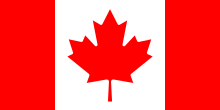
Information is sought regarding Brockman families of Canada.
South Africa Brockmans
edit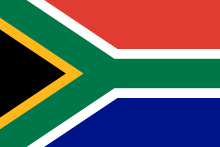
Information is sought regarding Brockman, Brockmann, Broekman, Broekma, etc. families of South Africa.
Australia Brockmans
edit
The Brockman families of Australia consist primarily of three sub-branches. The first two branches originated from two brothers William Locke Brockman (5th son) and Robert James Drake-Brockman (9th son) being the sons of Rev. Julius Drake-Brockman and Harriet Drake-Brockman (née Locke). The third branch of the Australian family originated from James Groves Birdwood Drake-Brockman who was a nephew of William and Robert.
William Locke Brockman arrived at the Swan River Colony on the ship Minstrel in January 1830. He arrived with his wife Ann Hamersley and first-born son Edmund Ralph, a prefabricated house, seven servants and his livestock (sheep), which included three rams and 46 pure merino ewes. He was the ninth landowner of the new colony to be granted land (Lot 9 Swan River Colony) by Surveyor General John Septimus Roe.
His younger brother Robert Brockman arrived on the ship Egyptian on December 1831 and their nephew James Groves Birdwood Drake-Brockman arrived many years later in 1872 after serving in the Indian Police. Web pages detailing the genealogy and history of the Brockman and Drake-Brockman families in England and Australia can be found here.
Notable Australian Brockmans
editThe Brockman family have a long history in Western Australia, including:
- AJ Brockman, a visual communicator and award-winning digital artist;
- William Locke Brockman, pastoralist and MLC;
- Edmund Ralph Brockman, pastoralist and MLC;
- Henry Brockman, pastoralist and MLC;
- Edmund Vernon Brockman, MLA;
- Frederick Slade Drake-Brockman, explorer and Surveyor General of Western Australia
- Slade Drake-Brockman, organiser of the WAY 1979 sesquicentennial celebrations;
- Grace Drake-Brockman née Bussell, of SS Georgette shipwreck fame;
- Henrietta Drake-Brockman, Western Australian author and historian
- Major General Edmund Alfred Drake-Brockman, Australia WWI & WW2 Veteran, C.B., C.M.G., D.S.O., M.I.D.
- Sir Thomas Charles Drake-Brockman K.B., D.F.C. – Long serving Australian Senator (politician), former minister in the Fraser Government
- Charles Samuel Brockman, explorer, grazier, pastoralist and pioneer of the Western Australian Gascoyne region;
- George Julius Brockman, explorer, pearler and pioneer of the Kimberley region of Western Australia;
- [http://adb.anu.edu.au/biography/drake-brockman-geoffrey-10047 Geoffrey Drake-Brockman (MC), engineer for the North-West of Western Australia and author of the book titled the 'Turning Wheel
Brockmans of Wider Europa, Oceana, Caribbean, Wider Africa, South America and Wider Asia
edit
Information is sought regarding Brockman, Brockmann, Broekman, Broekma, etc. families from smaller family groups around the world.
Geographical Brockman Names
edit- Brockman, California
- Brockman National Park, Western Australia
- Brockman River, Western Australia
- Mount Brockman, Australia
- Brockman 2 mine
- Brockman 4 mine
- Brockman Highway, Western Australia
References
edit- Clark, Genealogy of the Brockman and Dean Families, 1905
- Chaucer, Geoffrey. The Canturbury Tales. London. 1387-1400.
- Google Book Search. 4 Jan. 2014.
- Sinan Kökbugur, Ed. "Geoffrey Chaucer (1342-1400) _The Canturbury
- Tales_", Librarius.com. Librarius. 1997. Web. 4 Jan. 2014.
Further reading
edit- Burke, John (1836). A Genealogical and Heraldic History of the Commoners of Great Britain and Ireland, Enjoying Territorial Possessions Or High Official Rank: But Uninvested with Heritable Honours. Vol. 3. R. Bentley.
- County histories
- Harris, John (1719). History of Kent in Five Parts: Containing, I. An exact topography or description of the county. ... Vol. 1. London: D. Midwinter.
- Hasted, Edward (1797). History of Kent,: Corrected, enlarged, and continued to the present time, from the manuscript collection of the late Rev. Thomas Streatfeild and ... the public records, and other sources (2 ed.). Printed by W. Bristow. p. 206.
- Morant, Philip (1978). The history and antiquities of the county of Essex: Compiled from the best and most ancient historians (illustrated, reprint ed.). EP Pub. ISBN 0-7158-1301-3. (An earlier edition Reprinted and sold by Meggy and Chalk, 1816)
- Family histories
- Brockman, William Everett (1952). The Brockman scrapbook: Bell, Bledsoe, Brockman, Burrus, Dickson, James, Pedan, Putman, Sims, Tatum, Woolfolk, and related families (Unknown Binding). ASIN B0007E8Y48. (Out of Print), this information provided courtesy of Paul Brockman (Virginia)
- Brockman, William Everett (1 January 1959). Orange County Virginia families (Unknown Binding). Vol. Volume III. W.E. Brockman. ASIN B0007G5G0Q.
{{cite book}}:|volume=has extra text (help) - Drake-Brockman, David Henry (1936). Record of the Brockman and Drake-Brockman family. Privately Published. ASIN B00089U71U. (Out of Print), provided courtesy of Hugh-Drake Brockman (UK),
- Jackson, Alan (1993). Brockman & Drake-Brockman Family Tree: the Australian Branch 1830–1993. Menora, WA. ISBN 0-646-18200-5.
- Primary sources
- The Brockman Papers, Records in the British Museum, Location and Catalogue: 42586-42710, 45193-45220
External links
edit- Major General Edmund Alfred Drake-Brockman, Australia WWI & WW2 Veteran, C.B., C.M.G., D.S.O., M.I.D.
- Genforum Brockman Genealogy Discussion Group
- The Official Brockman and Drake-Brockman Page for English and Australia Family
- An English Whitfield Brockman Page
- An American Greenway Brockman Page
- A German Brockman Page
- A Swedish Brockman Page
Name Disambiguation for separate page
editHowever, it may have other meanings. In Old English, for example, a "brocket" is a young stag, and in heraldry a "brock" may be a badger. Additionally, in both Middle English and in the closely related, Old Frisian, and Norse, a brock is a type of working horse. Some have claimed the name originates with the same English word that gave rise to, "broker". In various parts of Germany, related words can mean "bridge" or "brook," or even be a root word for "breeches" [pants]. Among Ashkenazim and Sephardim, the name could be a variation of Baruch [Blessed] and man, and then later be Germanicized or Anglicized to Brochman, Brockmann, or Brockman, which names were already in use in Europe, the USA, and elsewhere during the various periods of increased Jewish migrations. Thus, there may be multiple meanings and origins of the Germanic name, Brockman.
Origins of English Brockman Name
editThe Brockman families of England may have chosen surnames identifying coastal wetlands origins from both coasts of the English Channel and the North Sea coast. In both the Old Frisian and the Kentish dialects of the times, for example, a brôk was an area of wetland.[1] Though the word, "brook" shares similar origins, and may have inspired some English Brockmans to choose the name, neither a stream of running water, nor a standing water feature, need be found on the land for it to be called, a brôk.
Like a person, a horse from the brok also came to be known for the topography of its home. Perhaps borrowing from the old Norse word for work horse, in Southern England, and in much of England, a work horse [hors] of plain appearance began to be called a brokhors as with the wild and feral horses which ranged on the brok. That brokhors animal's name came to be shortened to, "brock."
A contemporary example of the use of the equestrian term, "brok," is found in Geoffrey Chaucer's later 14th Century work, _The Canterbury Tales_. In an excerpt from "The Friar's Tale," a carter is driving three horses pulling a large cart of hay. The cart becomes stuck in a muddy rut and the carter curses the center horse (called the "lead" or "driving" horse), and urges the animal on:
-
- They saugh a cart that charged was with hey,
- Which that a cartere droof forth in his wey.
- Deep was the wey, for which the carte stood.
- The cartere smoot, and cryde as he were wood,
- "Hayt, Brok! Hayt, Scot! what spare ye for the stones?
- The feend," quod he, "yow fecche, body and bones,
- (PF 275-280)
While modern readers may assume that Brock and Scott are personal names for two of the three animals, and scholars speculate a grey horse might have been named, "Badger," from the proto-Celtic brocco (grey) and Old English brocc (badger), neither explanation is accurate. In driving a medieval unicorn team of three horses, the steadier two horses, or wheelers, are paired a full-length behind the drive horse. The most capricious, or "fast," horse is in the front, center and has the reigns affixed directly to its bit. The carter insulted the lead horse for being unable to pull the hay-laden cart from the ditch, calling the horse, "brok" and "stot." A "brok" was a plain and plodding horse from the fens [brock], and "scot," when corrected to stott [alternatively stotte or stot] is also defined as either a plow horse unfit for other tasks or—more frequently—as a run-down ox or cow. Neither term was a compliment for a cart horse. Today, the English surnames, Stott and Stottman, still refer to cattlemen. The use of the word, stot, is seen again here as the Summoner addresses a wife in the "The Friar's tale":
- Nay, olde stot, that is nat myn entente,
- Quod this somonour, "for to repente me
- For any thyng that I have had of thee.
- I wolde I hadde thy smok and every clooth!"
- (PF 366-369)
Upon freeing the cart from the mud, the carter again addresses only his lead horse, contritely praising him:
- Heyt! Now," quod he, "ther Jhesu Crist yow blesse,
- And al his handwerk, bothe moore and lesse!
- That was wel twight, myn owene lyard boy.
- (PF 297-299)
Toponymic surnames appear frequently in the region, and many of the surnames incorporating the words, Brok, Broke, and Brook, are descriptive of terrain. It is probable that when the Brockman families of Coastal England, Frisia, Jutland, and other coastal areas were adopting surnames, they chose a place name describing the wetlands near their homes. A secondary possibility is that, "Brockman" may also be an occupational name among families which may have specialized in brock [horse], and in breaking [Middle English: broke and broken] brock horses for farm work. In some modern Kentish dictionaries a "brock" is defined as "horse," and a "brockman" as a "horseman." While it is very possible that brooks of water or bridges became part of Brockman surnames in parts of Britain and Europe—and quite probable that the English surname later gained totemic, emblematic associations with badger and "brocket" deer—none of these options seem as likely a source for the family-identifying surname, Brockman, as, 'Man from the Wetlands.'
Among the earliest spellings for the name of a notable Brockman found in the region was, "Brokeman." As the family was prominent, there are some records and a burial, and we are able to see the name morph quickly to, "Brockman." As seen above, the most likely source for the Brockman surname of Kent was akin to the words "Marsh+Man."
References
edit- ^ wrterbuchderos01dooruoft,"Brôk." Wörterbuch der Ostfriesischen Sprache. 1879. Print. Koolman, J. ten Doornkaat. Forward. Braams, Herm. Wörterbuch der Ostfriesischen Sprache. Norden. Druck von Diedr. 1879. Print. Archive.org > eBook and Texts > Canadian Libraries > University of Toronto - Robarts Library book search. 4 Jan. 2014 Koolman, J. ten Doornkaat. 1879. Archives.org. American Libraries. https://archive.org/details/wrterbuchderos01dooruoft . p 233. [Brôck, Old Frisian, In German a Bruch. English, wetlands, marsh, moorlands].
- Clark, Genealogy of the Brockman and Dean Families, 1905
- Chaucer, Geoffrey. The Canturbury Tales. London. 1387-1400.
- Google Book Search. 4 Jan. 2014.
- Sinan Kökbugur, Ed. "Geoffrey Chaucer (1342-1400) _The Canturbury
- Tales_", Librarius.com. Librarius. 1997. Web. 4 Jan. 2014.